When to Use a Fake British Accent (like Madonna)
‘Are you going to have a fake British accent like Madonna?’
That’s the big question my personal Facebook friends asked me when I announced I was getting married and moving back to London from America.
A fake British accent was the least of my worries.
Finding an international shipping company, applying for a fiance visa, and getting a job held top spots on my list. Then, I planned to get ‘Into the Groove’ of London life. However, I knew I wasn’t going back to Florida with a fake British accent and having all my friends mates wonder ‘Who’s That Girl?’ when I visited.
Like most Americans, I find a British accent endearing. But, I’m not trying to be a phony. I’m American. Not British (even though my great grandmother was from North London). I had no plans to speak with an accent. Well, not at first.
After a few months of living in London, I realized realised I would need to give in. ‘What would be the reason to have a fake British accent?’, you ask.
Let me explain…
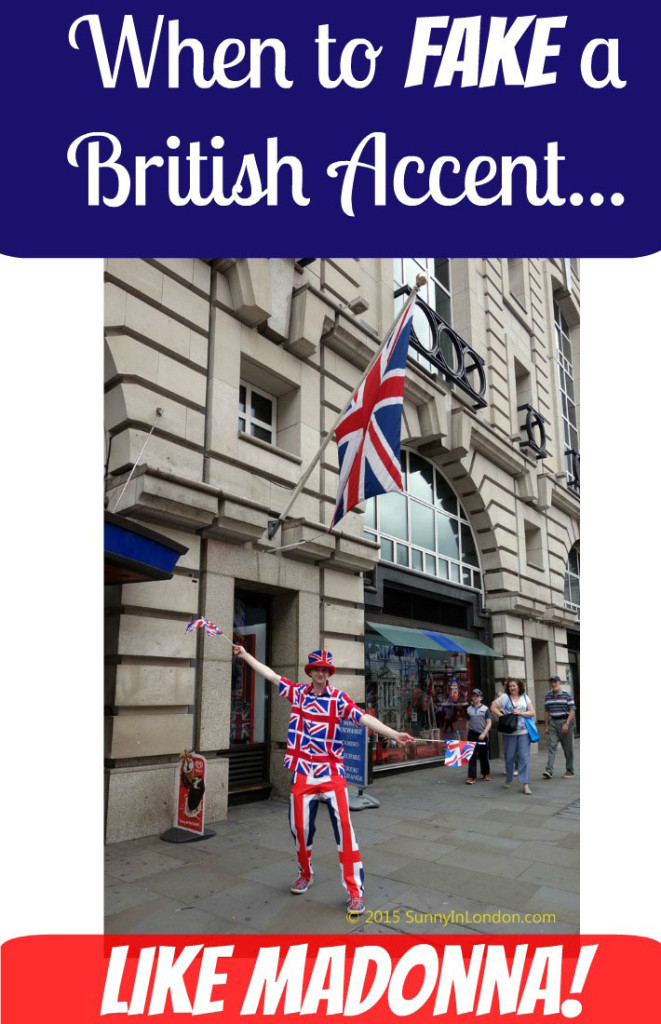 While Americans and Britons technically speak English, it’s no news that British people use different words than Americans for many things. Knowing them is one thing. Using them is another.
While Americans and Britons technically speak English, it’s no news that British people use different words than Americans for many things. Knowing them is one thing. Using them is another.
Some of these words sound silly to me when I hear them. For example, if you’re at a restaurant or pub in London, it’s standard to say, ‘Where’s the toilet?’ if you need to use the bathroom.
I have issues with that. It just sounds so crass to me. I feel like I am saying, ‘I have to take a piss. Where’s the pot in this place to do that?’ It’s just not cool.
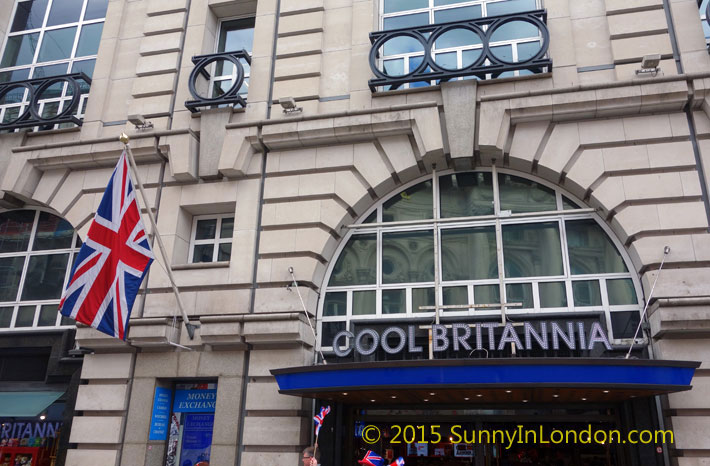 For the first few months I continued to ask for the restroom. Finally, I just got plain sick of the blank stare back from the person I was asking. Saying it over and over at a louder, slower pace always works but it is time-consuming. I realised I needed to surrender.
For the first few months I continued to ask for the restroom. Finally, I just got plain sick of the blank stare back from the person I was asking. Saying it over and over at a louder, slower pace always works but it is time-consuming. I realised I needed to surrender.
In a conversation with my sister, who moved from Florida to Michigan a few years ago and is noticeably losing her Southern twang and speaking like a Michigander, the phenomenon I explained to her made sense.
She said that if I start talking like British people, it is more a matter of speaking to be understood than trying to have a fake British accent (like Madonna). You reach a point where you just need to Express Yourself. It was a Ray of Light for me!
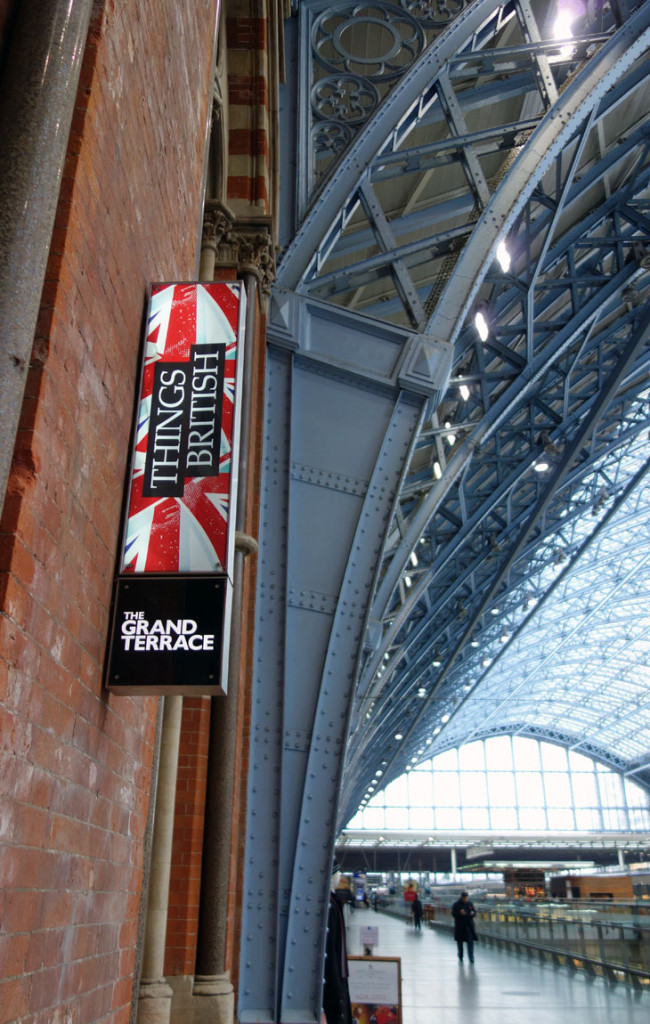 Reluctantly, I have started to convert.
Reluctantly, I have started to convert.
I cringe every time I say ‘veg’ in London instead of vegetables. My eyes silently roll to the back of my head when I say the word ‘brolly’ when referring to an umbrella.
And, I’m starting to really let the American accent mutha flippin’ go by dropping the ‘r’ sound from many words like ‘paper’ ‘water’ and ‘register’ so I can save time and not have to repeat what I need so often. It’s time efficient, not an attempt to be a Material Girl.
I just don’t have the time and energy to keep going round, and round, and round in London. 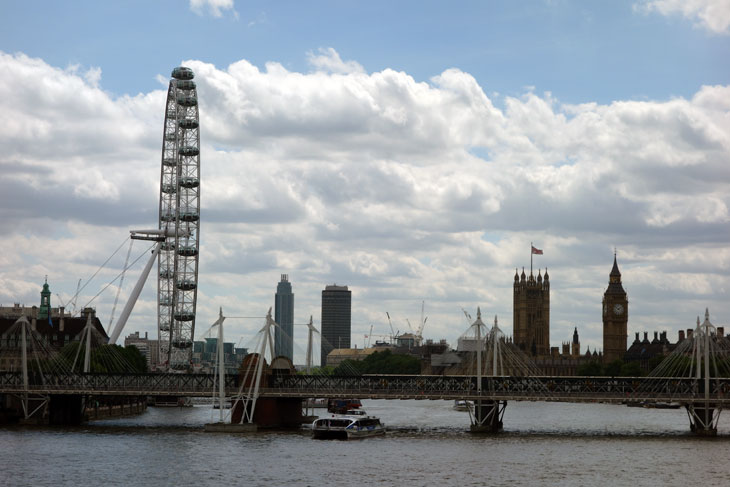
The basics for when and how to have a fake British accent:
- Be a Wanker- Choose certain words that you know are different for American vs British English when you need to communicate something quickly. It’s not Borderline. It’s a matter of talking to people in a language they understand. And- it will make life or your
visitHoliday easier. - Open Your Heart- There’s a few keywords that go a long way in England. Please, Thank You, and Sorry. Master them with the full on accent. Sometimes you just need to say these words in order to keep calm and carry on ‘being British’ for a few fleeting London moments. Sorry.
- Deepah and Deepah- Drop the ‘R’ if it ends a word. Think of that dreaded thick Boston accent that Matt Damon and Ben Affleck rocked back in the day of Good Will Hunting.
- Don’t Start Spreadin’ the News- I have a friend who left New York two years ago and has completely Hung Up her thick New Yawk kawwwwfeeee talk. She sounds nearly British now. It’s not very Vogue. In fact, it’s a little too fast and phony for me. However, another American expat friend of mine (also from New York) has lived in London for 16 years and has no trace of Brit speak when I talk to her. It’s refreshing. Yet, when she speaks with English people, she fluently converts to the exact words she needs with mild British inflections. Bloody brilliant!
- Crazy for You- Don’t use a fake British accent with your UK spouse, if that’s your living scenario like me. If you married a Brit and moved to London as an American expat, translating your ‘parseltongue’ is part of the deal he/she signed up for. You don’t have to wave the whole Union Jack at home.
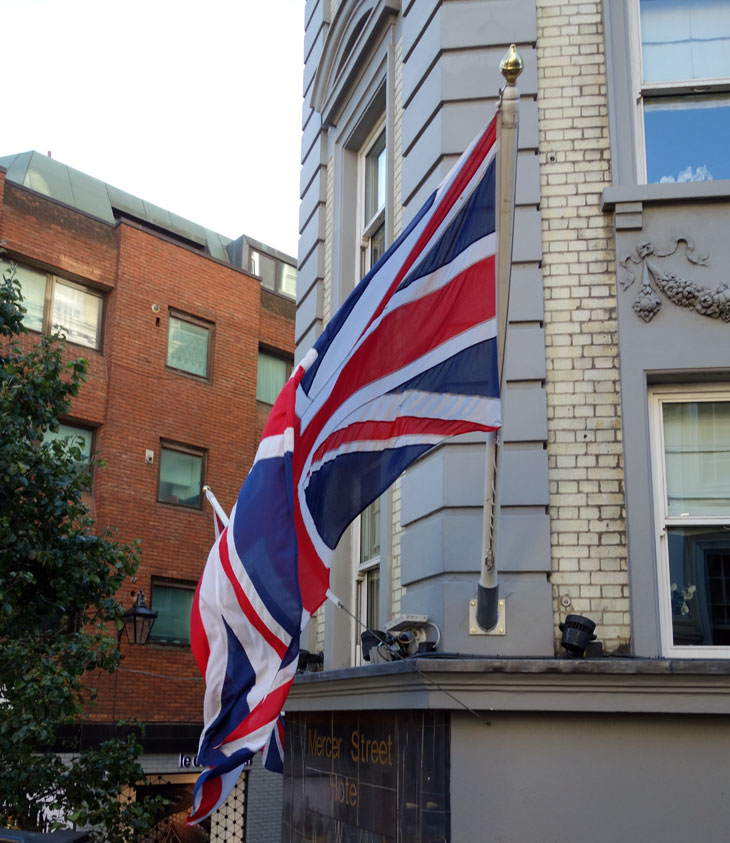
- Like a Virgin, Talkin’ for the Very First Time- When you’re with a group of American expat friends in London, on a return trip home in the US, or entertaining American visitors in the UK, remember your roots. Don’t try to show off your ‘bilingualism’ and have a fake British accent in their company. The need is gone so you’ll look like a ridiculous show off with no social skills. Those are times you don’t need to take extra steps to bridge any gaps.
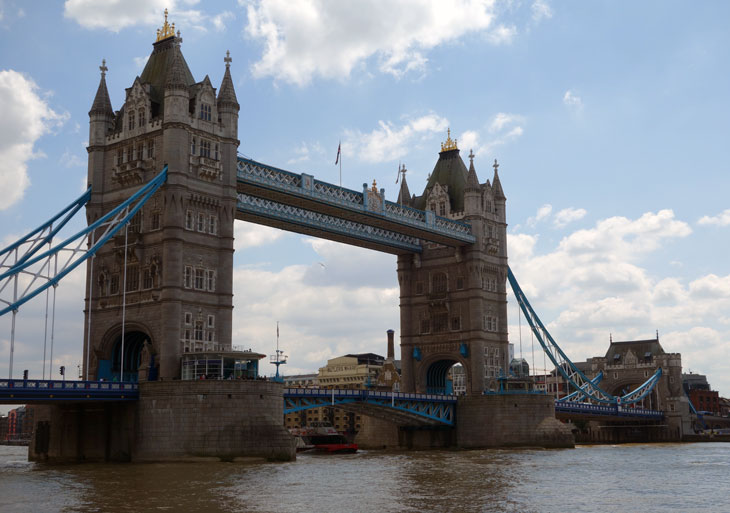
These are the words and phrases I am still refusing to use: ‘take the mick’, kip, chuffed, fag (for the word ‘cigarette’), gutted, ‘got the hump’, knackered and whinge. What words are on your list?
These are the words I secretly love and actually try to use as much as possible: dodgey, slapper, nicked, ‘on the p***’, ‘one off’, Blimey! Bullocks! Crikey! Hiya!
What words do you find yourself using to have a fake British accent in London, if you’re an American expat living here? Any Canadians, Kiwis, or Aussies suffering from the same language barriers?
Do you agree that it’s a matter of being understood and not being an imposter when you purposely say things with another accent as an expat? Is it any different from speaking Spanish or French with the proper accent? But surely it can’t make that much of a difference?
For the Sunny friends you lot who want to know more about the American expat experience in London, just Like a Prayer there are loads of articles on the blog to explore.
I think that’s about all for now. Innit, brov? Unless, you want to read this blog post again to see how many Madonna songs were featured? Please, please don’t click on the picture below. You’ll be sorry!!!

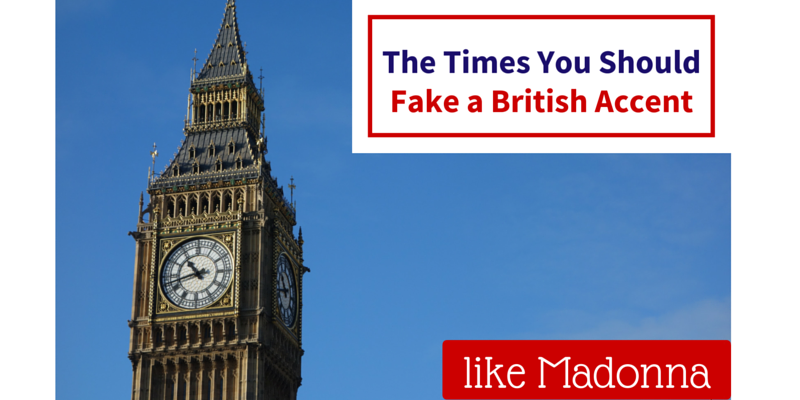
Cool post and loved the tie-in to Madonna! As a native speaker in English, I can do my best to imitate a Brit and try to mimic certain sounds to be understood. Just one thing though about the accent in a non-native language though — you mentioned Spanish and French. Since French is my second language, it’s not so simple to “put on” an accent. If that were the case, foreigners wouldn’t be so easily identified. Even if I try really hard, there’s no way I can repeat a sentence exactly like my French husband. As long as I’m understood, that’s enough for me and so far so good. 😉
Bonjour Diane! It must be very hard living as an expat in a non-native language. I’m lucky I only have to struggle with occasionally saying some words with a British accent. Glad we agree it’s about speaking to be understood. Oui? 😉
I know *exactly* what you mean with this! I’ve never lived in the UK, but I lived in New Zealand for three years, where they speak more British-y English than American (also, I hung out with a lot of English people there). I got made fun of constantly no matter what I said, but I still found myself rapidly changing to adapt to how everyone talked around me. I even started saying “tomahto.”
I still use “toilet” and “veg” and loads of other words, even though I live in the Netherlands now. I also use loads of British spellings. I don’t even know who I am anymore, really.
Awwwww. Emily that was both funny and heart-breaking. I’m sure expat readers will absolutely relate to your words. While it seems phony to consciously use words that aren’t part of our natural vocabulary, through time it becomes a necessity. Although, sometimes I saw ‘banaaaana’ with a particularly heavy New York accent just to ‘wind up’ my British friends. I haven’t ventured in to tomahhhhhhto yet. 🙂
I loved this post! I moved over to the UK 12 years ago and like you, had to learn the lingo (I never say pants anymore, it’s trousers – that one’s important). I quickly dropped my ‘ja’ for ‘yeah’ but I remember once asking for ice at a pub and having a blank stare. After asking numerous times to ‘I’m sorry, I don’t understand’, eventually I said ‘blocks of frozen water!’. Oh ICE. Um yeah… (apparently with my accent it sounded like ARSE.)
A glass of arse? HAHAHAHA! That is pretty hysterical! Thank you for reading and agreeing. These posts are always a bit dangerous because you’re not always sure if people will share your perspective, or worse, be offended. Where did you live prior to the UK?
Totally know where you’re coming from! I’m Louisiana native living in Leeds, aka the frozen nawth! I haven’t consciously tried to adopt a British accent, but I have had to adapt my vocabulary just to be understood as you say, especially in an academic context (period=full stop, parentheses=brackets, etc.) and food shopping (cilantro=coriander, green onion=spring onion etc.). I occasionally say PRO-cess and the like without thinking but that’s just because I’m around British people all the time so it rubs off.
I am a British Expat living in Canada – I found the term bathroom confusing when I moved here, as to me a bathroom contains a bath ;). I also rarely asked for the toilet when I lived back home, especially in a pub it was always the “ladies” or the “gents” you might find that more comfortable. PS it’s bollocks not bullocks. Like you I’ve struggled here and I am determined even after almost 10 years not to change the way I pronounce some words, in spite of being corrected on many occasions lol. Fun read, cheers!